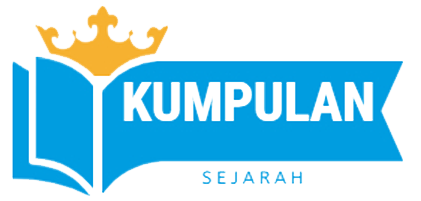Cornell University News is more than just a source of information; it’s a window into the vibrant heart of a world-renowned institution. From groundbreaking research to the inspiring stories of students and faculty, Cornell University News captures the essence of a community dedicated to knowledge, innovation, and positive change.
The news outlet covers a wide range of topics, encompassing academic achievements, student life, faculty breakthroughs, and the university’s global impact. Cornell University News plays a vital role in connecting the university with its diverse stakeholders, including alumni, donors, and the broader community.
Cornell University News
Cornell University, a prestigious Ivy League institution, boasts a rich history of academic excellence and innovation. Its news outlets, including the Cornell Chronicle and the Cornell Sun, play a vital role in disseminating information about the university’s groundbreaking research, vibrant student life, and impactful faculty achievements. These news sources serve as a bridge between the university and the broader community, fostering a sense of transparency and engagement.
Cornell University News: Importance and Impact
Cornell University news is essential for both the academic and broader communities. It provides a platform to showcase the university’s contributions to knowledge, innovation, and societal progress. By sharing news about research breakthroughs, student initiatives, and faculty accomplishments, Cornell University news highlights the university’s commitment to academic excellence and its impact on the world.
Types of News Coverage
Cornell University news covers a wide range of topics, encompassing the university’s multifaceted activities. These include:
- Research: News about groundbreaking research findings, new discoveries, and innovative projects undertaken by Cornell faculty and students.
- Student Life: News about student activities, organizations, events, and initiatives that contribute to the vibrant campus culture.
- Faculty Achievements: News about faculty awards, recognitions, publications, and other accomplishments that highlight their expertise and contributions to their respective fields.
- Campus News: News about campus events, construction projects, policy updates, and other developments that impact the university community.
- Alumni News: News about alumni achievements, reunions, and other events that connect Cornell graduates with the university.
Key Areas of Focus in Cornell University News
Cornell University News consistently highlights groundbreaking research across diverse disciplines, demonstrating the institution’s commitment to pushing the boundaries of knowledge and contributing to societal advancement. The university’s research endeavors span a wide spectrum, encompassing areas such as medicine, engineering, agriculture, and the humanities, each contributing significantly to the advancement of their respective fields.
Impact of Cornell University Research on Various Fields and Society
Cornell University’s research has a profound impact on various fields and society as a whole. Here are some examples:
- Medicine: Cornell researchers have made significant contributions to medical advancements, including the development of new treatments for cancer, Alzheimer’s disease, and other debilitating conditions. For instance, researchers at the Weill Cornell Medicine have developed a new drug that can effectively target and kill cancer cells, potentially revolutionizing cancer treatment.
- Engineering: Cornell engineers are at the forefront of innovation, developing cutting-edge technologies that address global challenges. They have developed new materials for renewable energy, sustainable construction, and advanced manufacturing, paving the way for a more environmentally friendly and efficient future.
- Agriculture: Cornell’s renowned College of Agriculture and Life Sciences has made significant strides in improving food production and security. Researchers have developed new crop varieties that are more resistant to pests and diseases, as well as more efficient methods for water and fertilizer use.
- Humanities: Cornell’s humanities scholars contribute to our understanding of the human experience and the world around us. Their research delves into history, literature, philosophy, and other disciplines, providing insights into human behavior, culture, and society.
Role of Cornell University News in Promoting Innovation and Scientific Advancements
Cornell University News plays a crucial role in promoting innovation and scientific advancements by disseminating research findings to a wider audience. This dissemination not only informs the public about the latest breakthroughs but also inspires future generations of researchers and fosters collaboration among scientists across different disciplines.
- Public Awareness: By sharing research findings with the public, Cornell University News raises awareness of the critical issues facing society and the potential solutions being developed by Cornell researchers. This increased awareness can lead to greater public support for research and innovation.
- Inspiration and Collaboration: Cornell University News highlights the achievements of Cornell researchers, inspiring others to pursue scientific endeavors and fostering collaboration among scientists. By showcasing the impact of research, it encourages further exploration and development in key areas.
- Knowledge Dissemination: Cornell University News serves as a platform for disseminating knowledge and promoting the transfer of technology from the lab to the marketplace. By sharing research findings, it helps to accelerate the pace of innovation and translate scientific discoveries into real-world applications.
Student Life and Activities at Cornell
Cornell University News consistently highlights the diverse and vibrant student experience at Cornell. From academic achievements to extracurricular involvement, the news platform showcases the many ways students contribute to the campus community and beyond.
Student Initiatives and Clubs
Student initiatives and clubs play a significant role in shaping the Cornell experience. Cornell University News often features stories about these groups, highlighting their impact on the campus community. These initiatives cover a wide range of interests, from social justice advocacy to artistic expression.
- The Cornell Daily Sun, Cornell’s student-run newspaper, has a long history of reporting on campus news and events. The Sun’s coverage often includes student perspectives and concerns, providing a platform for student voices.
- The Cornell Concert Commission, a student organization responsible for bringing major musical acts to campus, has hosted renowned artists like Kendrick Lamar and Lizzo. These events create a sense of excitement and community on campus.
- Cornell’s numerous student-run organizations, such as the Cornell Entrepreneurship Club and the Cornell Investment Group, provide students with opportunities to develop their skills and pursue their passions. These clubs foster collaboration and innovation, preparing students for future success.
Student Achievements and Contributions
Cornell University News regularly celebrates the achievements and contributions of Cornell students. This includes academic excellence, research breakthroughs, and impactful community service.
- The news platform frequently highlights student research projects, showcasing their innovative work in various fields. These projects often have real-world applications, addressing pressing issues in society.
- Cornell University News also features stories about students who have received prestigious awards and scholarships, recognizing their academic achievements and potential. These stories inspire other students and demonstrate the high caliber of Cornell’s student body.
- The news platform also celebrates students’ involvement in community service projects. From volunteering at local organizations to participating in international service trips, students make a positive impact on their communities.
Faculty Achievements and Recognition
Cornell University faculty consistently excel in their respective fields, making significant contributions to scholarship, research, and innovation. They are recognized for their groundbreaking work, innovative ideas, and impactful research, bringing prestige and recognition to Cornell University. Their dedication to pushing the boundaries of knowledge and addressing pressing global challenges has resulted in numerous accolades and awards, showcasing their exceptional talent and dedication.
Notable Achievements and Recognitions
Cornell faculty have been recognized for their outstanding contributions across various disciplines. These recognitions highlight their impact on the academic world and their commitment to excellence.
- National Academy of Sciences (NAS): Several Cornell faculty members have been elected to the NAS, a prestigious organization that recognizes the nation’s leading scientists and engineers. These individuals have made groundbreaking contributions to their fields, advancing knowledge and understanding in areas such as medicine, physics, and biology.
- National Academy of Engineering (NAE): The NAE recognizes individuals who have made significant contributions to engineering research, practice, and education. Cornell faculty members elected to the NAE have played a crucial role in shaping the future of engineering and technology.
- American Academy of Arts and Sciences (AAAS): The AAAS recognizes individuals who have made exceptional contributions to their fields, including the arts, sciences, and humanities. Cornell faculty members elected to the AAAS have demonstrated a deep commitment to intellectual inquiry and societal impact.
- Nobel Prize: Cornell faculty have been awarded the Nobel Prize in various fields, including physics, chemistry, and economics. These prestigious awards acknowledge their groundbreaking research and its significant impact on the world.
Impact of Faculty Research and Publications
Cornell faculty are actively engaged in research that addresses pressing global challenges and advances knowledge in their respective fields. Their research findings are disseminated through peer-reviewed publications, contributing to the advancement of science and scholarship.
- High-Impact Publications: Cornell faculty publish their research in prestigious journals, including Nature, Science, and Cell, which are known for their rigorous peer-review process and high impact factor. These publications reach a wide audience of researchers and scholars, influencing the direction of future research.
- Citation Impact: The research conducted by Cornell faculty is highly cited by other researchers, demonstrating its influence and impact on the academic world. This high citation rate reflects the quality and significance of their work.
- Funding Success: Cornell faculty are successful in securing funding for their research projects from prestigious organizations such as the National Science Foundation (NSF), the National Institutes of Health (NIH), and the Department of Energy (DOE). This funding enables them to pursue ambitious research goals and make significant contributions to their fields.
Cornell University’s Global Impact
Cornell University’s commitment to global engagement extends beyond its borders, actively shaping and contributing to the world stage. This dedication is evident in its news coverage, which highlights Cornell’s international collaborations, research endeavors, and the impact of its initiatives on global challenges.
International Collaborations and Partnerships
Cornell University fosters a network of international partnerships, collaborating with institutions across the globe. These collaborations involve joint research projects, faculty exchanges, and student programs, fostering a rich exchange of knowledge and perspectives.
- Cornell has established research collaborations with universities in China, India, and Africa, focusing on areas like sustainable agriculture, climate change, and public health.
- The university also participates in international initiatives, such as the Global Challenges Initiative, which brings together researchers from different countries to address pressing global issues.
- Cornell’s Global Cornell program supports student exchange programs and international internships, providing students with opportunities to study and work abroad.
Cornell’s Impact on Global Issues
Cornell University’s research and initiatives have a significant impact on addressing global issues, contributing to solutions for challenges like climate change, poverty, and disease.
- The Cornell Atkinson Center for Sustainability conducts research and develops solutions for environmental challenges, working on projects related to renewable energy, sustainable agriculture, and climate change mitigation.
- The university’s Global Development program focuses on tackling poverty and inequality, supporting initiatives in areas like education, healthcare, and economic development.
- Cornell’s research in public health has contributed to global efforts to combat infectious diseases, such as HIV/AIDS and malaria.
Cornell University News
Cornell University News plays a vital role in connecting the university with the surrounding community, fostering a sense of shared purpose and mutual benefit. It serves as a platform to showcase the university’s impact on the local area, highlighting initiatives and partnerships that contribute to the region’s growth and well-being.
Cornell University News: Engaging with the Community
Cornell University News regularly features stories about the university’s efforts to engage with the local community. These stories demonstrate the university’s commitment to being a good neighbor and a valuable resource for the surrounding area.
- Community Partnerships: Cornell University News often highlights partnerships between the university and local organizations. These partnerships can range from research collaborations to educational programs to volunteer initiatives. For example, Cornell’s “Cornell Cooperative Extension” is a prime example of how the university uses its expertise to benefit the community. It offers a wide range of programs and services to local residents, focusing on agriculture, nutrition, and youth development.
- Community Events: Cornell University News often covers events that bring together the university and the local community. These events can be anything from concerts and festivals to lectures and workshops. These events provide opportunities for members of the community to interact with Cornell students, faculty, and staff, fostering a sense of connection and shared interest.
- Community Outreach Initiatives: Cornell University News regularly reports on initiatives designed to address local needs. These initiatives can range from providing healthcare services to underserved communities to promoting economic development in the region. For example, Cornell’s “Cornell Atkinson Center for Sustainability” conducts research and offers solutions to environmental challenges, including those facing the local community.
Cornell University News
Cornell University News leverages a diverse range of communication channels and platforms to reach its various audiences, effectively disseminating news and information about the university’s latest developments, achievements, and events.
Communication Channels and Platforms
Cornell University News employs a variety of communication channels and platforms to reach its target audiences, including students, faculty, staff, alumni, and the general public. These channels play a crucial role in keeping the Cornell community informed about the university’s latest news, events, and activities.
- Cornell University News Website: The primary source of news and information for the Cornell community, the Cornell University News website provides comprehensive coverage of university-related news, research breakthroughs, faculty achievements, student activities, and more. The website features a user-friendly interface with clear categories, searchable archives, and multimedia content, making it easy for readers to find the information they need.
- Social Media Platforms: Cornell University News utilizes social media platforms such as Facebook, Twitter, Instagram, and LinkedIn to share news updates, photos, videos, and engaging content. These platforms allow for real-time communication and interaction with the Cornell community, expanding the reach of news and information to a wider audience.
- Email Newsletters: Cornell University News distributes targeted email newsletters to specific segments of the Cornell community, such as students, faculty, staff, and alumni. These newsletters provide tailored content relevant to the interests of each group, ensuring that important information reaches the right audience.
- Cornell Chronicle: The Cornell Chronicle is a weekly newspaper published by Cornell University, providing in-depth coverage of university news, research, and events. The Chronicle is a valuable resource for those seeking detailed information about Cornell’s activities and accomplishments.
- Cornell Magazine: Cornell Magazine is a quarterly publication featuring articles and stories highlighting Cornell’s research, teaching, and alumni achievements. The magazine offers a more in-depth and engaging perspective on the university’s impact and contributions to the world.
Effectiveness of Communication Channels
Cornell University News’s communication channels have proven effective in disseminating news and information to various audiences. The university’s website serves as a central hub for news and information, providing a comprehensive and easily accessible resource for the Cornell community. Social media platforms allow for real-time communication and engagement, expanding the reach of news and information to a wider audience. Email newsletters ensure that targeted content reaches specific segments of the Cornell community, while the Cornell Chronicle and Cornell Magazine offer in-depth coverage of university news and activities.
Future of Cornell University News
In the digital age, Cornell University News will continue to adapt and evolve to meet the changing needs of its audiences. The university will likely invest in new technologies and platforms to enhance its communication efforts, such as interactive content, virtual reality experiences, and personalized news feeds. Additionally, Cornell University News will continue to prioritize engaging content that resonates with its audiences, ensuring that news and information remains relevant and accessible.
Challenges and Opportunities for Cornell University News
Cornell University News faces a complex landscape, navigating the evolving media ecosystem while aiming to engage its diverse audience. It must effectively communicate the university’s achievements, research breakthroughs, and student experiences to a global audience that increasingly consumes news through digital platforms.
Challenges in the Media Landscape, Cornell university news
The current media landscape presents Cornell University News with a number of challenges:
- Competition for Attention: News outlets are constantly competing for attention in a saturated media environment. With a vast array of information available online, capturing and retaining the audience’s attention is increasingly difficult.
- Changing Consumption Habits: Audiences are consuming news differently, favoring shorter, more visually appealing formats, often through social media platforms. Traditional news formats, such as long-form articles, may not resonate with younger audiences.
- The Rise of Misinformation: The spread of misinformation and “fake news” presents a significant challenge for credible news organizations like Cornell University News. Maintaining trust and ensuring the accuracy of information is crucial.
Opportunities for Expansion and Impact
Despite the challenges, Cornell University News has significant opportunities to expand its reach and impact:
- Leveraging Digital Platforms: Cornell University News can leverage the power of social media and other digital platforms to reach a wider audience. This includes creating engaging content, utilizing targeted advertising, and partnering with influencers.
- Storytelling Innovation: Cornell University News can explore innovative storytelling techniques to engage audiences, including multimedia content, interactive features, and data visualizations.
- Building Community: Cornell University News can foster a sense of community by creating platforms for dialogue and engagement, allowing alumni, faculty, and students to share their perspectives.
Adapting to Changing Media Trends
Cornell University News can adapt to changing media trends by:
- Prioritizing Mobile-First Content: Optimizing content for mobile devices is crucial, as a majority of users access news on smartphones and tablets.
- Embracing Data-Driven Insights: Utilizing analytics to understand audience preferences and engagement patterns can inform content strategy and improve effectiveness.
- Cultivating a Multi-Platform Strategy: Reaching audiences across various platforms, including social media, podcasts, and video, is essential for maximizing reach and impact.
The Future of Cornell University News
Cornell University News is constantly evolving, adapting to new technologies and changing audience expectations. As we look towards the future, there are exciting possibilities for how Cornell University News can continue to inform and engage its audience.
The Importance of Multi-Platform Content
Cornell University News can leverage the power of various platforms to reach a wider audience and provide diverse content.
- Interactive Content: Cornell University News can explore interactive content formats such as infographics, quizzes, and virtual tours to enhance audience engagement and understanding.
- Social Media: Utilizing platforms like Twitter, Facebook, and Instagram allows for real-time updates, audience interaction, and targeted content dissemination.
- Video and Audio: Creating engaging video and audio content, including podcasts and live streams, can cater to different learning preferences and enhance accessibility.
- Mobile Optimization: Ensuring that Cornell University News is easily accessible and optimized for mobile devices is crucial in today’s digital landscape.
Personalized News Experiences
Cornell University News can implement personalization features to tailor content to individual user preferences.
- Customizable Newsletters: Allowing users to subscribe to specific areas of interest within Cornell University News, such as research, student life, or alumni updates.
- Algorithmic Recommendations: Leveraging algorithms to suggest relevant content based on user behavior and interests, similar to popular streaming platforms.
Engaging with the Cornell Community
Cornell University News can foster a sense of community by actively engaging with students, faculty, staff, and alumni.
- Interactive Forums and Q&A Sessions: Providing platforms for discussion and exchange of ideas on relevant topics related to Cornell University.
- Student-Led Content: Encouraging student contributions to Cornell University News, providing a platform for their voices and perspectives.
Cornell University News: A Case Study in University Communication
Cornell University News serves as a model for effective university communication, demonstrating how to effectively engage diverse audiences and achieve strategic communication goals. The platform showcases a comprehensive approach to news dissemination, leveraging various mediums to reach a broad audience, fostering transparency, and promoting Cornell’s achievements and impact.
Key Takeaways from the Case Study of Cornell University News
The case study of Cornell University News provides valuable insights into effective university communication practices.
- Strategic Content Development: Cornell University News prioritizes high-quality, diverse content tailored to specific audiences. This includes research breakthroughs, student achievements, faculty recognition, and campus events, ensuring a balanced representation of Cornell’s multifaceted activities.
- Multi-Channel Distribution: Cornell University News leverages multiple channels to reach diverse audiences, including its website, social media platforms, email newsletters, and press releases. This multi-channel approach ensures maximum visibility and accessibility for various stakeholders.
- Data-Driven Insights: The platform utilizes data analytics to understand audience engagement and tailor content accordingly. This data-driven approach enables Cornell University News to optimize its communication strategies and maximize the impact of its messages.
- Focus on Impact: Cornell University News emphasizes the impact of Cornell’s research, teaching, and outreach activities. This focus on showcasing the real-world applications of Cornell’s work strengthens its reputation and demonstrates its relevance to a broader audience.
- Transparency and Openness: Cornell University News maintains transparency by providing timely and accurate information about university activities and initiatives. This open communication fosters trust and builds a strong relationship with stakeholders.
Implications for Other Universities and Institutions
The case study of Cornell University News offers valuable lessons for other universities and institutions seeking to enhance their communication strategies.
- Adopt a Multi-Channel Approach: Universities and institutions should leverage a variety of communication channels to reach diverse audiences, including websites, social media platforms, email newsletters, and press releases.
- Prioritize High-Quality Content: Focus on developing engaging and informative content that showcases the institution’s achievements, research, and impact.
- Utilize Data Analytics: Employ data analytics to understand audience engagement and optimize communication strategies.
- Emphasize Impact: Highlight the real-world applications of research, teaching, and outreach activities to demonstrate the institution’s relevance and impact.
- Promote Transparency and Openness: Foster trust and build strong relationships with stakeholders by providing timely and accurate information.
Cornell University News: A Look Ahead
Cornell University News is constantly evolving, adapting to the changing landscape of higher education and the ever-evolving media environment. The future of Cornell University News holds exciting possibilities, shaped by emerging trends and technologies that will reshape how information is shared and consumed.
Emerging Trends and Technologies
Emerging trends and technologies will significantly impact Cornell University News. These developments will influence how news is created, disseminated, and consumed.
- Artificial Intelligence (AI): AI will play a crucial role in automating tasks such as content creation, translation, and data analysis. AI-powered tools can analyze large datasets to identify trends and insights, helping journalists produce more accurate and insightful stories. For example, AI can help analyze student survey data to identify key areas of concern or satisfaction.
- Virtual and Augmented Reality (VR/AR): VR/AR technologies can create immersive experiences that enhance storytelling. Cornell University News can use VR/AR to transport audiences to research labs, classrooms, or even historical events. For instance, a VR experience could allow viewers to explore the inside of a new research facility or witness a groundbreaking scientific discovery.
- Social Media: Social media platforms will continue to be essential for disseminating news and engaging with audiences. Cornell University News can leverage social media to reach wider audiences and foster two-way communication. This includes using interactive features like polls, quizzes, and live Q&A sessions to engage with followers.
- Data Visualization: Data visualization tools can help make complex information more accessible and engaging. Cornell University News can use data visualizations to present research findings, student demographics, or financial data in a clear and compelling manner. For example, a data visualization could show the growth in research funding or the distribution of students across different majors.
Predictions for the Future of Cornell University News
The future of Cornell University News will be characterized by innovation, engagement, and a focus on data-driven insights.
- Personalized News Experiences: Cornell University News will increasingly tailor content to individual users’ interests. Using AI-powered algorithms, the news platform can deliver relevant stories based on users’ reading habits, areas of study, or research interests. This personalized approach will ensure that users receive the most relevant and valuable information.
- Increased Focus on Multimedia Content: Cornell University News will move beyond traditional text-based articles and embrace multimedia storytelling. This includes using videos, podcasts, infographics, and interactive elements to create engaging and informative content. For example, a video could showcase the work of a faculty member or the experience of a student studying abroad.
- Data-Driven Insights: Cornell University News will leverage data analytics to understand audience behavior and measure the impact of its content. This data will inform editorial decisions, content strategy, and audience engagement efforts. For example, data analysis can reveal which stories are most popular, which platforms are most effective for reaching audiences, and how content is shared and consumed.
The Evolving Role of News in Higher Education
News plays a vital role in higher education by informing stakeholders, fostering transparency, and showcasing the institution’s achievements. The role of news is evolving as universities adapt to the changing information landscape.
- Strategic Communication: Cornell University News will increasingly serve as a strategic communication tool, shaping the institution’s narrative and promoting its mission. The news platform can highlight key initiatives, research breakthroughs, and student success stories to build a positive reputation and attract students, faculty, and donors.
- Engaging with Diverse Audiences: Cornell University News will strive to reach diverse audiences, including students, faculty, alumni, donors, and the general public. This includes tailoring content to specific audiences and using multiple communication channels to ensure broad reach. For example, Cornell University News can use social media to engage with alumni and prospective students, while traditional news articles can inform the general public about research breakthroughs.
- Building Community: Cornell University News can foster a sense of community by connecting people across campus and beyond. The news platform can highlight student organizations, faculty collaborations, and alumni achievements to create a shared sense of identity and belonging. This can be achieved through features that showcase the diverse experiences and perspectives of the Cornell community.
As Cornell University continues to evolve and make its mark on the world, its news platform remains a powerful tool for communication and engagement. Cornell University News not only informs but also inspires, showcasing the university’s dedication to excellence and its unwavering commitment to making a positive difference.






